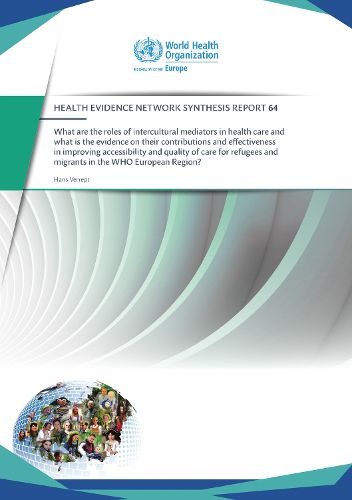Readings Newsletter
Become a Readings Member to make your shopping experience even easier.
Sign in or sign up for free!
You’re not far away from qualifying for FREE standard shipping within Australia
You’ve qualified for FREE standard shipping within Australia
The cart is loading…






Intercultural mediators are employed to resolve linguistic and cultural barriers in a variety of health-care contexts. This report examines the main roles performed by intercultural mediators in health care across the WHO European Region and analyses evidence on their effectiveness in improving accessibility and quality of care for refugees and migrants, and the factors that enable them to have a positive impact. The beneficial impact of intercultural mediators is hindered by a lack of professionalization, insufficient training and the non-systematic and inconsistent implementation of intercultural mediation programmes. Developing training programmes and accreditation systems, further research into the effectiveness of intercultural mediators in health care, and the development of strategies that guarantee access to intercultural mediators in health care wherever and whenever needed will enormously improve the quality of health care for refugees and migrants.
$9.00 standard shipping within Australia
FREE standard shipping within Australia for orders over $100.00
Express & International shipping calculated at checkout
Intercultural mediators are employed to resolve linguistic and cultural barriers in a variety of health-care contexts. This report examines the main roles performed by intercultural mediators in health care across the WHO European Region and analyses evidence on their effectiveness in improving accessibility and quality of care for refugees and migrants, and the factors that enable them to have a positive impact. The beneficial impact of intercultural mediators is hindered by a lack of professionalization, insufficient training and the non-systematic and inconsistent implementation of intercultural mediation programmes. Developing training programmes and accreditation systems, further research into the effectiveness of intercultural mediators in health care, and the development of strategies that guarantee access to intercultural mediators in health care wherever and whenever needed will enormously improve the quality of health care for refugees and migrants.